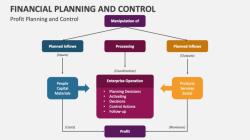Does stock dividend increase shareholders wealth?
A stock dividend, also known as a stock split or bonus issue, does not inherently increase shareholders' wealth in a meaningful way. Instead, it redistributes existing wealth among shareholders by altering the number of shares they hold and the price per share. Here's an analysis of how stock dividends work and their impact on shareholders' wealth:
No Change in Total Value: When a company issues a stock dividend, it essentially divides its existing shares into smaller portions, increasing the number of shares outstanding. However, there is no change in the total value of the company. For example, if a company with 100,000 shares valued at $1,000,000 decides to issue a 2-for-1 stock dividend, it would result in 200,000 shares valued at $1,000,000, with each share now worth $5 (compared to the previous $10).
Redistribution of Wealth: Stock dividends do not create new value for shareholders; they only reconfigure the ownership structure. Shareholders receive additional shares, but the value per share is proportionally reduced. In our example, if you held 100 shares before the 2-for-1 stock dividend, you would now have 200 shares, but the total value of your investment remains the same.
Impact on Wealth Per Share: While stock dividends don't increase total wealth, they can affect wealth per share. In the example, the value per share decreased from $10 to $5 after the stock dividend. Shareholders' ownership in the company is now spread across a larger number of shares, which may impact the perceived value of each share.
Liquidity and Trading Impact: Stock dividends can influence liquidity and trading dynamics. A larger number of shares may increase liquidity, making it easier to buy and sell shares. However, it can also lead to lower trading prices per share, which may affect the company's attractiveness to investors.
Investor Perception: Shareholders may view stock dividends positively as they receive additional shares, potentially feeling that they hold a larger stake in the company. However, some investors may prefer higher share prices and a lower number of shares, as this can make the stock seem more valuable.
In summary, stock dividends do not inherently increase shareholders' wealth because they don't create new value for the company. Instead, they redistribute existing wealth among shareholders by changing the number of shares and the price per share. Shareholders' overall ownership stake in the company remains the same, but the value per share is adjusted. Whether stock dividends are viewed positively or negatively depends on individual investor preferences, market conditions, and the company's specific circumstances.
The impact of stock dividends on shareholder wealth is a complex issue that has been debated by academics and investors for many years. There is no consensus on whether stock dividends have a positive or negative impact on shareholder wealth.
Some studies have shown that stock dividends can have a positive impact on shareholder wealth. For example, one study found that stock dividends can lead to an increase in stock prices. This is likely because stock dividends signal to investors that the company is well-managed and has strong financial performance.
Other studies have shown that stock dividends can have a negative impact on shareholder wealth. For example, one study found that stock dividends can lead to a decrease in earnings per share. This is because stock dividends increase the number of shares outstanding, which dilutes the earnings of each share.
Factors to Consider
There are a number of factors that can affect the impact of stock dividends on shareholder wealth. These factors include:
- The company's financial performance: Companies that are performing well financially are more likely to pay stock dividends. This is because stock dividends signal to investors that the company has excess cash that it can return to shareholders.
- The company's dividend policy: Some companies have a policy of paying stock dividends on a regular basis. This can make stock dividends more attractive to investors who are looking for a steady stream of income.
- The investor's investment goals: Investors who are looking for income may prefer stock dividends to cash dividends. This is because stock dividends can provide investors with a higher yield than cash dividends. Investors who are looking for capital appreciation may prefer cash dividends to stock dividends. This is because cash dividends can be reinvested to purchase more shares, which can lead to capital appreciation.
Conclusion
The impact of stock dividends on shareholder wealth is a complex issue that depends on a number of factors. Investors should carefully consider their own investment goals and the company's financial performance before deciding whether or not to invest in a company that pays stock dividends.













